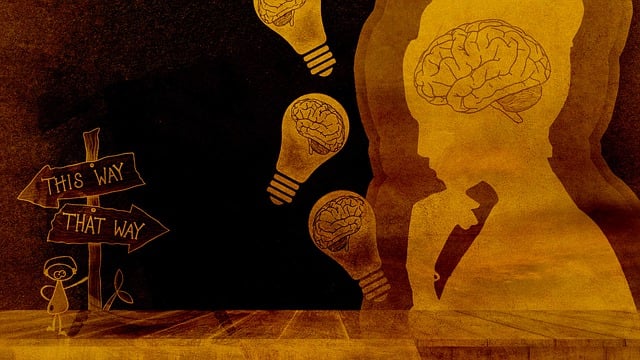Couples Therapy Gilbert focuses on forgiveness as a transformative tool for healing broken relationships. Therapists guide partners through emotional expression, communication enhancement, and trust rebuilding to overcome resentment and promote understanding. Active listening, guided imagery, and cognitive-behavioral techniques help couples navigate past pain, fostering empathy, connection, and lasting forgiveness, ultimately strengthening their bond. Success is measured by shifts in emotional states and relationship dynamics rather than traditional metrics.
Forgiveness-focused counseling is a transformative process designed to heal relationships and restore emotional balance. In couples therapy Gilbert, this approach gains prominence as a powerful tool for partners seeking resolution. This article delves into the intricacies of forgiveness in relationships, exploring its significance and practical techniques. We examine the counselor’s role, providing insights into effective communication strategies and helping overcome barriers. Additionally, we discuss how to measure success in forgiveness-focused couples therapy, guiding readers towards lasting relationship healing.
- Understanding Forgiveness in Relationships
- The Role of Counselors in Forgiveness Therapy
- Techniques for Effective Forgiveness Communication
- Overcoming Barriers to Forgiveness
- Measuring Success in Forgiveness-Focused Couples Therapy
Understanding Forgiveness in Relationships

Forgiveness is a cornerstone in couples therapy, especially in practices like counseling in Gilbert. In relationships, forgiveness isn’t merely an act of letting go but a conscious decision to release resentment and move forward. It involves acknowledging pain while choosing not to let it define the relationship. This process is crucial for mending bonds broken by misunderstandings, betrayals, or hurtful words.
In the context of couples therapy Gilbert, understanding forgiveness means helping partners navigate their emotions, communicate openly, and rebuild trust. It’s about learning to see beyond the injury and appreciating each other’s strengths and vulnerabilities, fostering a more profound connection. This journey towards forgiveness is transformative, enabling couples to experience renewed love, empathy, and growth in their relationships.
The Role of Counselors in Forgiveness Therapy

In forgiveness-focused counseling, counselors play a pivotal role in guiding clients toward healing and restored relationships. They facilitate conversations that encourage individuals or couples to explore and process their feelings about past hurts and grievances. Through active listening, empathy, and strategic interventions, counselors create a safe space for clients to express their emotions openly. This process is crucial for breaking free from cycles of resentment and anger, which often hinder personal growth and interpersonal connections.
In the context of couples therapy Gilbert, counselors specialize in helping partners navigate forgiveness as a means to strengthen their bond. They assist in improving communication, fostering understanding, and rebuilding trust. By teaching effective coping strategies and promoting positive interactions, counselors enable couples to transform their relationships from strained to harmonious. The ultimate goal is to help clients find peace, improve overall well-being, and cultivate lasting forgiveness in their personal lives.
Techniques for Effective Forgiveness Communication

Forgiveness is a powerful tool in couples therapy, and Gilbert-based therapists often employ specific techniques to help partners communicate effectively. One approach is encouraging active listening, where each partner expresses their feelings and experiences without interruption. This fosters understanding and empathy, creating a safe space for vulnerable conversations.
Additionally, therapists guide clients through guided imagery or mindfulness exercises to promote perspective-taking. By visualizing the other’s viewpoint, couples can gain insights into their partner’s actions and react from a place of compassion rather than anger. These techniques aim to transform negative interactions into opportunities for growth and deeper connection, which is particularly beneficial in couples therapy Gilbert practitioners offer.
Overcoming Barriers to Forgiveness

Many individuals and couples struggle with forgiveness, often due to emotional barriers built up over time. These barriers can include resentment, anger, or a sense of justice that makes letting go seem impossible. In counseling sessions for Couples Therapy Gilbert, experts help clients navigate these challenges by exploring the root causes of their feelings. Through various techniques, such as cognitive-behavioral therapy, they learn to challenge negative thought patterns and replace them with more compassionate perspectives.
One common barrier is the fear of reliving past pain. Counseling provides a safe space to confront and process these emotions, teaching clients coping strategies to manage any discomfort. Another obstacle is the belief that forgiveness means condoning harmful behavior. Counselors clarify that it’s about releasing the emotional burden, not excusing actions. By redefining forgiveness and its personal meaning, individuals in therapy can break free from resentment, fostering healthier relationships, both within themselves and with their partners.
Measuring Success in Forgiveness-Focused Couples Therapy

Measuring success in forgiveness-focused couples therapy is a nuanced process that goes beyond traditional metrics. Unlike many therapeutic approaches, the effectiveness of this method isn’t solely determined by the absence of symptoms or achieving specific behavioral changes. Instead, success lies in observing profound shifts in emotional states, relationships dynamics, and the couple’s overall capacity for connection.
In Couples Therapy Gilbert, therapists often assess progress through qualitative measures such as increased empathy, reduced defensiveness, and open communication. They may use structured interviews, self-report questionnaires, or observational notes to gauge these changes over time. The ultimate goal is not just to help a couple resolve conflicts but to foster deep understanding, compassion, and enduring bond between them.
Forgiveness-focused counseling, as explored in this article through themes like understanding forgiveness in relationships and the role of counselors in therapy, offers a powerful tool for couples seeking healing. By employing techniques for effective communication and overcoming barriers, couples can experience significant progress in their relationships. Measuring success in Couples Therapy Gilbert involves assessing improvements in forgiveness attitudes and behaviors, leading to stronger, more fulfilling connections. This transformative process is accessible to those committed to navigating the path of forgiveness.






